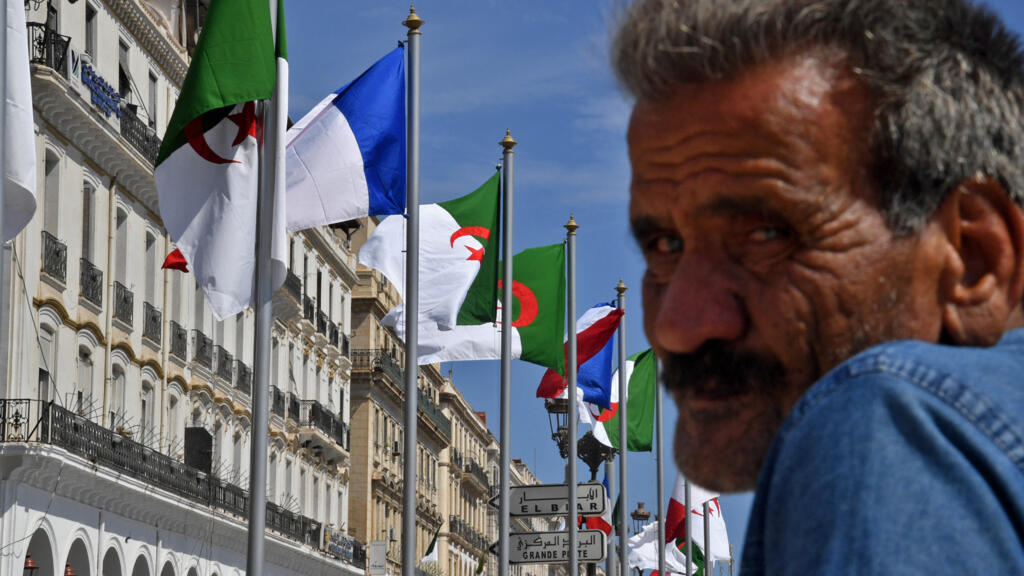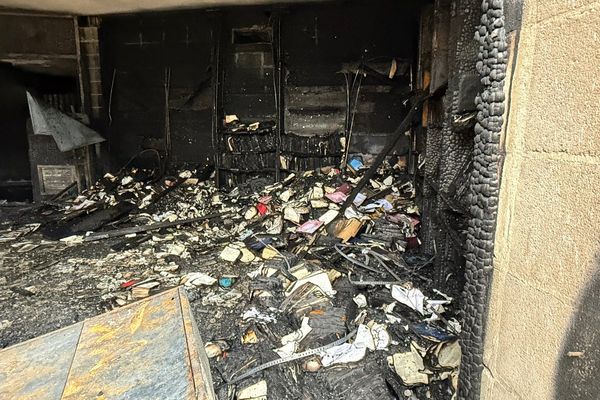
A 1968 migration agreement that allows Algerians to easily obtain French residency should be completely rethought, according to a report by MPs from President Emmanuel Macron’s party.
In a report submitted on Wednesday to the National Assembly’s finance committee, MPs Charles Rodwell and Mathieu Lefèvre propose overhauling the agreement, which was signed in 1968 by France and Algeria, six years after the end of the Algerian war of independence.
At the time, France was in need of foreign labour to support its economy. The agreement allows for Algerians and their families to obtain French residency certificates – similar to residency permits issued to other foreigners – through an expedited procedure.
Algerians are also allowed to set up as freelancers or start their own businesses without the extra formalities other foreigners may face.
60th anniversary of the Evian peace accords between France and Algeria
Question of equality
The report criticises what it calls the agreement's lack of equality, and its financial cost to France.
"The text and original spirit of the '68 agreement have gradually been diverted from their original intention," Rodwell told the commission, referring to subsequent agreements and changes to the accord – which he said have increased the cost to French taxpayers to at least €2 billion a year.
He acknowledged, however, that this figure is just an estimate. "We are missing data," he said, adding that "the state is blind" when it comes to the full cost.
The MPs also argue that the special legal status granted to Algerians undermines the principle of equality enshrined in the constitution – in this case, the equal treatment of foreigners.
“A Guinean or Senegalese citizen must wait 18 months to be eligible for family reunification, compared to 12 months for an Algerian,” Rodwell told RFI.
He also claimed that Algeria is failing to fully apply its side of the agreement, pointing to Algeria's failure to pay pensions to Algerians living in France who worked in Algeria.
“For an Algerian who worked for 40 years – 20 years in Algeria and 20 years in France – the agreement says that France must pay half his pension. Algeria must pay the other half of the pension,” he said. But Algeria has not been paying, he added, and “France [has to] compensate”.
Facts vs feelings: is France really being 'flooded' by foreigners?
'Historical responsibility'
The report came under fire from Socialist MP Philippe Brun, vice president of the finance committee, who said it appeared politically motivated, rather than based on sound financial reasoning.
It comes amidst debates over limiting immigration, and Algerians make up the largest group of foreigners living in France. They are the second-largest group granted first-time residence permits.
They also make up the highest number of undocumented migrants apprehended in France.
Brun said that France has a historical responsibility towards Algeria, which it colonised for more than a century.
“General de Gaulle wanted Algerians to have a specific status due to their belonging to the French nation for 132 years,” he said. “It is not completely incomprehensible that people who shared a common destiny with France for 132 years should have their status governed in a specific way.”
Franco-Algerian tensions
The report was intended to be presented this summer but was delayed, in part because it could have hindered the negotiations for a pardon of Algerian writer Boualem Sansal.
Diplomatic relations between France and Algeria have been deteriorating since last summer, after France recognised a Moroccan sovereignty plan for Western Sahara, where the Algerian-backed Polisario Front has campaigned for independence for years.
Since then, both countries have expelled each others’ officials and recalled ambassadors, in an unprecedented diplomatic crisis.
A Senate report in February recommended reconsidering the agreement, and the French government has since announced plans to ask Algiers to “re-examine” all existing immigration agreements.
Macron calls colonisation a 'crime against humanity' in Algeria interview
Constraints
While the immigration agreement offers certain benefits, it also has constraints. Algerian students are only allowed to work half of full-time hours, when other foreign students can work 60 percent of full time, and they must obtain a work permit to do so.
And because the 1968 agreement falls under international law, which takes precedence over French law, Algerians in France are not subject to more recent immigration laws – whether favourable to them or not.
“When you weigh everything up, Algerian nationals lose more than they gain, and they would be better off renegotiating the treaty,” public law professor Serge Slama told Les Echos newspaper.
Rodwell and Lefèvre say that “ending this agreement would mark a new phase in the shared history between France and Algeria". The MPs hope to be heard by Macron, who, as president, has sole authority to end or ratify international agreements.
This article was partially adapted from the original version in French.







